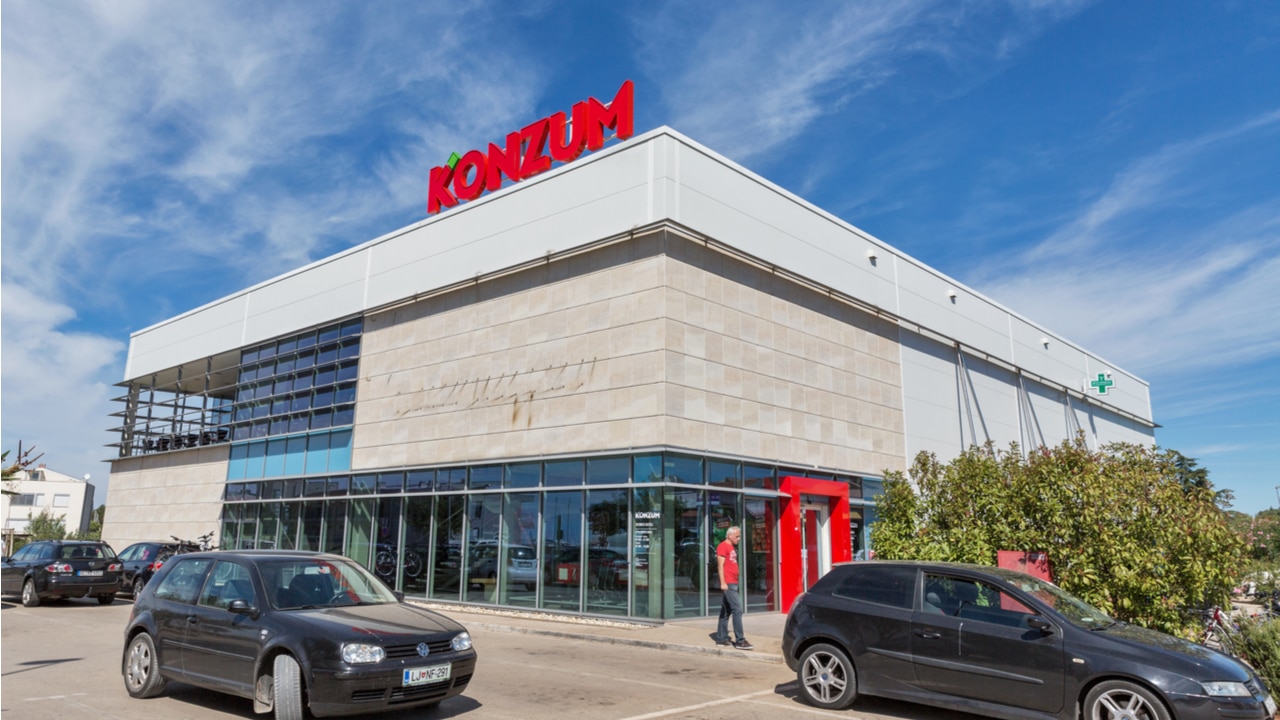Croatia’s largest grocer, the supermarket chain Konzum, has allowed payment with Bitcoin and other cryptocurrencies since the first of December.
Finally, glorious news of Bitcoin acceptance again, albeit not Germany, but from Croatia: “The introduction of cryptocurrency payments is another sign that Konzum is continuously monitoring global trends, innovating and setting the standards in the retail sector,” commented Konzum’s Chief Financial Officer Uroš Kalinić in a company press release.
Konzum is the largest player in the Croatian retail sector with 700 stores and 11,400 employees. Around 650,000 customers shop in the chain’s supermarkets every day. In addition, Konzum operates wholesale markets, which supply the smaller grocers with goods, as well as drugstores. Konzum supermarkets can also be found outside Croatia, for example in Bosnia and Herzegovina.
NEW – Croatia’s largest supermarket chain now accepts bitcoin payments online pic.twitter.com/Z263z3idCS
– Bitcoin Magazine (@BitcoinMagazine) December 1, 2021
To accept crypto payments, Konzum is working with Croatian crypto startup Electrocoin. Its payment system PayCek accepts Ether, Bitcoin Cash, EOS, Dai, Ripple, Stellar, Tether and USDC in addition to Bitcoin. The grocer advertises payments with cryptocurrencies as being “simple and similar to credit cards”.
But those who think they can immediately walk into the nearest konzum in Croatia and pay with Bitcoin, Tether or Stellar will be disappointed at first. “So far, you can only pay with Bitcoin in our online shops,” the press release puts into perspective. But it holds out the prospect: “We plan to introduce it in other shops across the country soon.”
After all, Konzum’s online shops are richly stocked. There, Bitcoiners can already pay for more than 12,000 products with crypto, such as food, hygiene and household items.
The payment service provider Electrocoin seems to be very active and successful in Croatia. Only in February, it managed to convince the petrol station operator Tifon to accept Bitcoins. Tifon is one of the largest petrol station operators in the country, with countless petrol stations in Croatia and other Balkan countries. According to the report, it was already possible to pay with cryptocurrencies at 46 Tifun petrol stations in February.
In itself, Croatia is not a classic Bitcoin country. At least not according to the usual indicators. Usually, the inflation of the local currency as well as Google searches are reliable indicators of Bitcoin acceptance. But neither the one nor the other is conspicuous for Croatia. The kuna, Croatia’s currency, is largely stable against the euro, and the number of searches for Bitcoin is slightly below that in Germany and significantly below that in the Netherlands. The trading volume on LocalBitcoins also gives no indication that any kind of mass adoption is taking place in Croatia.

Croatian supermarket chain
In some circumstances, Konzum and Tifon are speculating on the future – on people paying with cryptocurrencies not yet today, but tomorrow or the day after tomorrow – and perhaps also on tourists using cryptocurrencies. Travellers could save themselves the trouble of exchanging money if they pay with bitcoin or dollar tokens, for example.
If acceptance by Konzum succeeds, this could become an extremely positive signal for general acceptance by supermarket chains: It works. Cryptocurrencies are mature enough to be used in this dimension as well. A prime example of this is the Bitcoin acceptance at MacDonalds and Starbucks in El Salvador, where travelling Bitcoiners were amazed at how well Lightning already works.
Whether ElectroCoin’s payment system PayCek is also Lightning-enabled is not clear from Konzum’s press release or ElectroCoin’s website. At least there is a fairly active Lightning node with the name “ElectroCoin”. Whether this belongs to the payment provider, however, cannot be verified. But it could be a subtle hint that ElectroCoin is integrating Lightning today or in the future.
